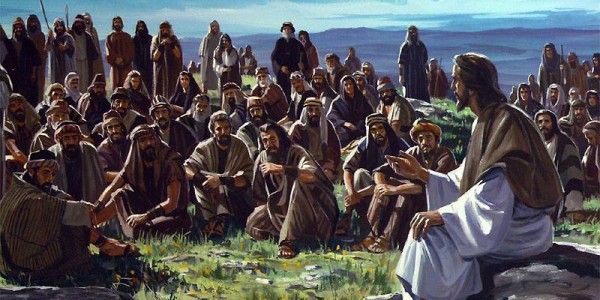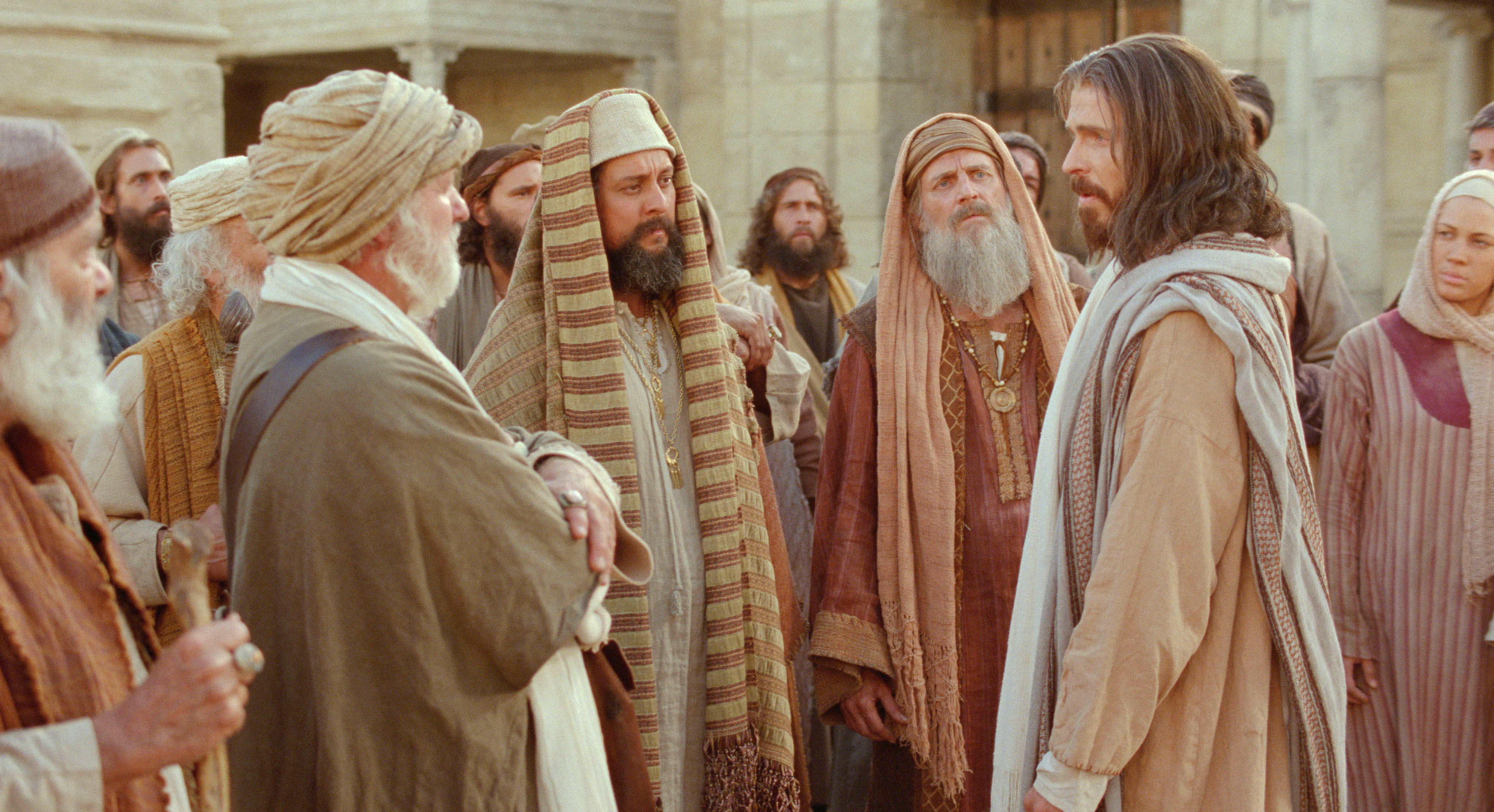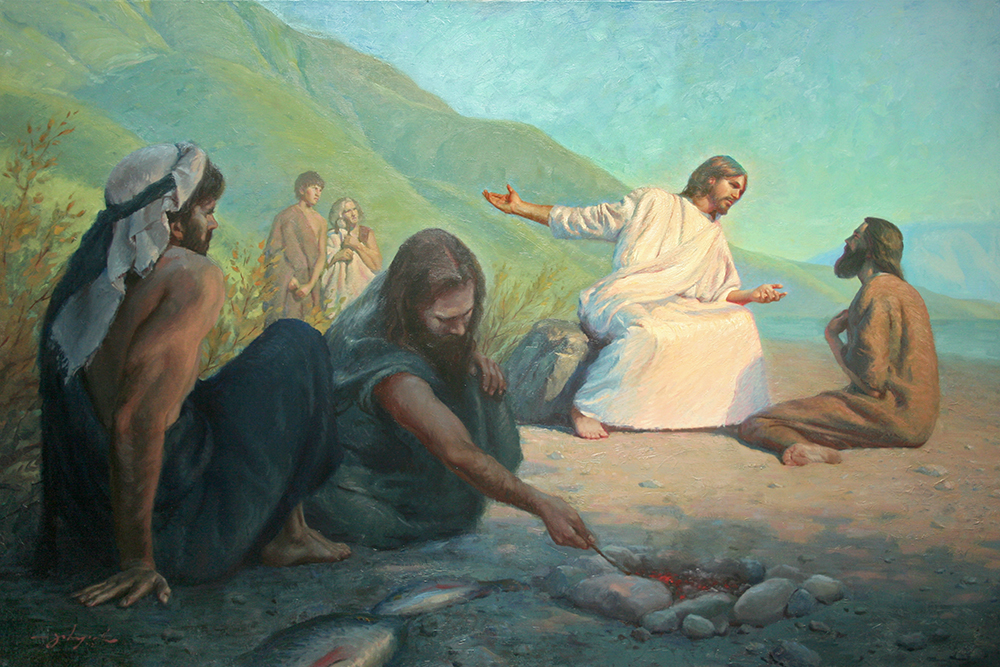This post originated as the Commencement Speech I delivered May 19 to the Graduating Class of 2018 at Judah Christian High School, where I teach. These graduating Seniors were in my Worldviews class.
I am honored to have one last opportunity to share some thoughts with you on this momentous occasion. We’ve spent a lot of time in class this year wrestling with “the Big Questions of Life”:
- Who Am I? Why am I here?
- What gives meaning to life?
- Is there a way we “ought” to live?
- And most importantly . . . do grades really matter?
I hope you’ve come away from the year with confidence that there are, indeed, real and true answers to these questions:
- You are a unique human being created in God’s image and likeness, placed purposefully in this particular place and time to reflect and proclaim His glory.
- Life is a gift from God, and you will find fullness of purpose in loving Him—and everyone you encounter–with all of your mind, heart, soul, and strength.
- A life well-lived is sown in faith, rooted in truth, cultivated in virtue, and evidenced in fruit. What does God require of you? To act justly, love faithfulness, and to walk humbly with Him.
As for grades . . . well, we all know the answer to that one J. The good news is that you are all here today, prepared and equipped for the journey ahead. Now I’d like to set before you three more “Big Questions” that will shape the rest of your life. They are questions Jesus asked his own disciples. Each was asked in a particular context, for a specific purpose, and with an important lesson in mind. I think they each also have a fitting application for you –- and for all of us—here and now.
By the time of what we call Sermon on the Mount, Jesus’s disciples had been following his public ministry for more than a year. They had witnessed him performing miracles. Listened to his teaching. Learned how to fast and how to pray. Yet at the end of this amazing discourse on how to live out the Gospel, Jesus says to everyone gathered there, including his disciples, in Luke 6 . . .
“Why do you call Me ‘Lord, Lord,’ and don’t do the things I say?
He follows this question with a familiar illustration of two men. The one who “Hears My words, and acts on them builds his house on a firm foundation. When the flood came, the river crashed against that house and couldn’t shake it, because it was well built.”
“But the one who hears and does not act is like a man who built a house on the ground without a foundation. The river crashed against it, and immediately it collapsed. And the destruction of that house was great!”
Of course, Jesus isn’t just offering advice on good construction techniques. He want his followers to know that a profession of faith in Him brings you life, but obedient faithfulness to Him builds your life upon the firm foundation of His truth. You will need that foundation to weather the storms of life and stand firm against the lies that try to shake your faith.
Jesus’s next “Big Question” comes in Matthew 16 after an encounter with the Pharisees & Saducees, who come to him asking for a sign. Jesus knows what they are really testing Him, looking for proof that he is who he claims to be.
Later, when he’s alone with his disciples Jesus warns, “Watch out and beware of the yeast (or the leaven) of the Pharisees and Sadducees.” This confuses them. Why is he talking about bread? I can see them bickering about who forgot to bring the bread this time!
I imagine Jesus shaking his head and reminding them what happened last time there was no bread. And besides, he must have explained, that’s not what I was talking about anyway! Jesus wasn’t telling them to beware of the yeast in bread, but of the teaching of the Pharisees and Sadducees.
Then Jesus suddenly seems to change the subject entirely, asking, “Who do people say that the Son of Man is?” The disciples offer various responses, but then he drives the question home:
“But you,” who do you say that I am?”
Peter responds, with his famous confession of faith: “You are the Messiah, the Son of the living God!” Jesus commends his faith and pledges to build His Church upon the Rock of Truth expressed in Peter’s words. More than that—He promises that the very Gates of Hades will not overpower that Truth.
Now, by implication, we come back to the Pharisees & Sadducees. This phrase “Gates of Hades” is a metaphor for the powerful strongholds of this world that stand against the Truth of the Gospel. We’ve learned a lot this year about some of these strongholds. One of them is the need to have proof before we believe Jesus is who He says he is. Another is the idea that following the rules or doing good things without a repentant heart is “good enough.”
You will encounter strongholds such as these all of your life—we all do. As part of His Church, God is calling you to speak truth into these lies. Your ability to do so with confidence and power rests squarely on how you answer this question.
Who do you say Jesus is?
A good example? Yes, but not enough. A help in time of need? Of course, but still not enough. He is the Christ, the anointed one, God’s only Son, sent to save the world and restore God’s Kingdom. He calls each of you to this great work.
Which brings me to the third “Big Question” for today. After his Resurrection, Jesus appears to his disciples on several occasions. In John 21, he finds a few of them returning from an unsuccessful fishing trip. Watching from the shore, Jesus calls out, “Try again.” This seems familiar, they fishermen must have thought. They are not quite sure who the stranger on the shore was, but that nagging familiarity prompts them to listen and act. The net fills with fish, and they immediately realize who’s talking to them—it’s Jesus!
As you leave this place and the daily presence of “Jesus stuff,” you may at times feel yourself distanced from God. That’s a good time to listen and act when familiar old things remind you of His Presence. Respond to that urge to pray at the start of the day (for good measure, throw in a Pledge and Psalm 67!). Stay in fellowship with other believers, even though you no longer have to go to chapel. When you encounter some profound “Big Question” in life, write a thought paper!
Back to our story. Jesus prepares breakfast for the disciples, then asks Peter three times:
“Do you love Me?”
Peter responds each time, “Yes, Lord. You know that I love You.” Jesus says back to him each time: “Feed My sheep.”
Now first, remember that Peter had previously denied Jesus how many times? Three. And Jesus asks the question how many times? Three. This is a reminder to us that God’s Grace is limitless, and his love for us is great. Even when we fail Him, He is always prepared to restore us. But there is another important point to the question.
God has given each of you unique gifts and abilities to use in service to His Kingdom. You may be a gifted leader, as Peter was. For you, “Feed my sheep” means “Lead my people.” Some of you are creative, some are compassionate, some are wise, some are encouragers. God is asking you: “Do you love Him? Truly? Unconditionally? Faithfully? Then, empowered by that love, use your gifts, talents, and skills to be a blessing to others. Feed His sheep.
We here at school, along with your parents, family, and other significant people in your life, have all done our best to establish a firm foundation to build upon. Now it is your turn to build. Do so in faithful obedience, loving service, and confidence that “He who started a good work in you will carry it on to completion until the day of Christ Jesus.”
Be blessed, be a blessing, and – as our friend Rich Mullins always said – “Be God’s”




